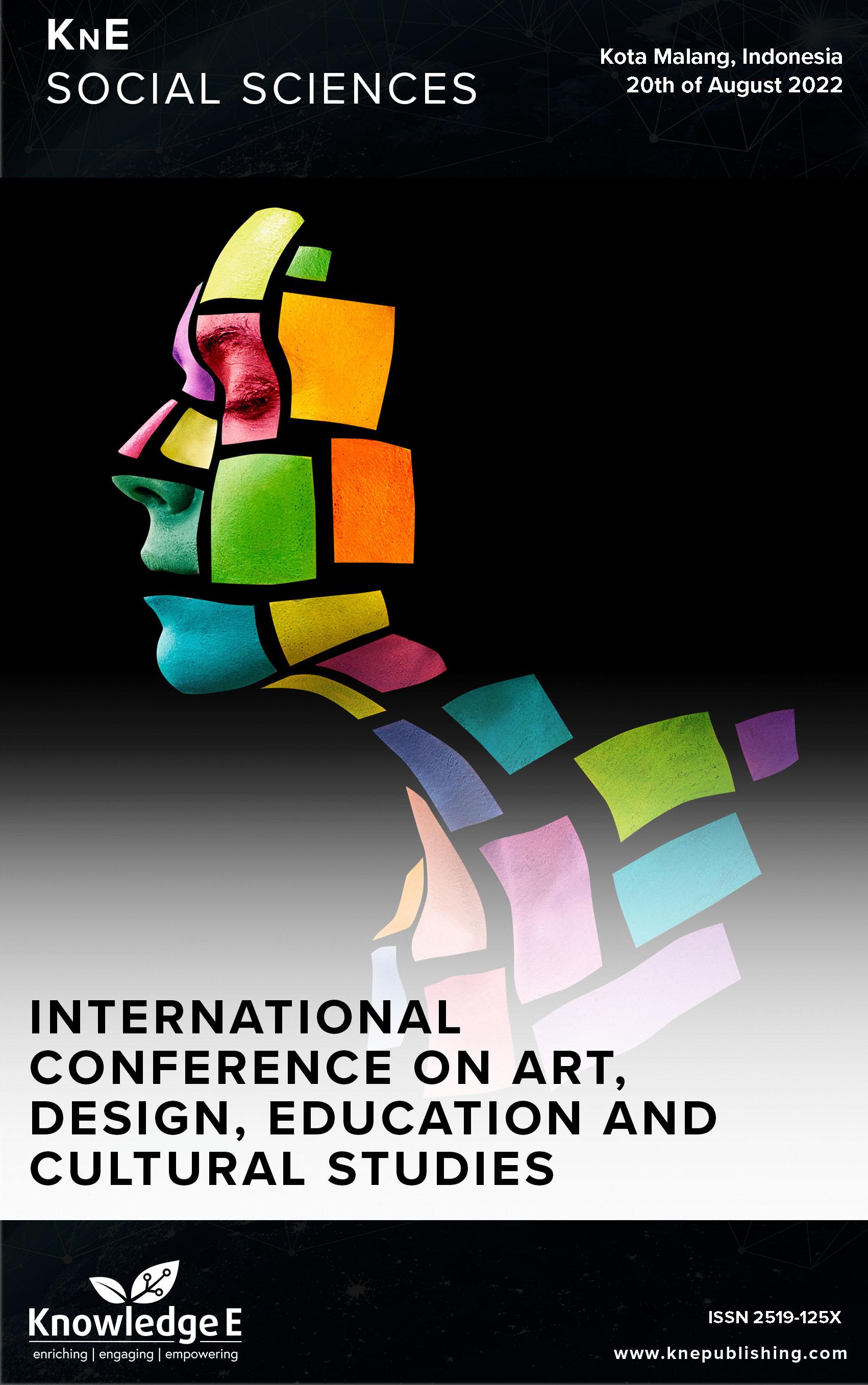Personal Learning Services and Immersive Learning in Art Design to Enhance Indonesian Education
DOI:
https://doi.org/10.18502/kss.v8i15.13903Abstract
Indonesia was one of the countries that successfully survived the COVID-19 pandemic. The pandemic has provided good lessons, especially in the education sector, and ithas provided new ways of overcoming problems in education, especially in art and design. In this paper, I will share experiences related to Personal Learning Services based on gamification and the implementation of immersive learning based on Augmented Reality, which was developed at the Department of Art and Design at theState University of Malang in Indonesia. This research was developed for primary education students in Indonesia, especially in Malang City, East Java. The contribution forthis article was as follows: 1) developed some research to solve the learning problem impact of COVID-19; 2) with the software, media, and game specialization group in the art design department conducted several studies in the form of Personal Learning Services and immersive learning. In the discussion of Personal Learning Services based on gamification, the study aims to improve the quality of children’s characters by displaying background designs in several main locations in Malang. This research includes several minigames that attempt to increase children’s discipline, routine, and consistency. Related to implementing immersive learning based on Augmented Reality, is research to introduce characters in wayang panji to children. This study develops Augmented Reality technology without markers to make it easier for users to learn without fear of losing the marker, which has been a problem in AR. This research, acccording to the survey with the statistical tests result shows that it is a feasible solution to apply to the learning process.
Keywords: learning media, personal learning services, gamification, immersive learning, augmented reality
References
[2] Skalka J, Drlik M, Obonya J. Automated assessment in learning and teaching programming languages using virtual learning environment. IEEE Global Engineering Education Conference, EDUCON, IEEE Computer Society. 2019:689-697.
[3] Ahmed W, Anto B. AN AUTOMATIC WEB-BASED QUESTION ANSWERING SYSTEM FOR E-LEARNING. Information Technologies and Learning Tools. 2017 Apr;58(2):1.
[4] Pramono A, Rahayuningtyas W, Dewi Puspasari B, Idzwan Hj A. Ismail, “Development Educational Material Topeng Malang with the Augmented Reality for Supporting Character,”. KnE Social Sciences. 2020;(Sep): https://doi.org/10.18502/kss.v4i12.7637
[5] Omidshafiei S, et al. Learning to teach in cooperative multiagent reinforcement learning. The Thirty-Third AAAI Conference on Artificial Intelligence. 2018;(May):6128- 6136.
[6] Puspasari BD, Damayanti LL, Pramono A, Darmawan AK. Implementation K-means clustering method in job recommendation system. 7th International Conference on Electrical, Electronics and Information Engineering: Technological Breakthrough for Greater New Life, ICEEIE 2021, Institute of Electrical and Electronics Engineers Inc. 202https://doi.org/10.1109/ICEEIE52663.2021.9616654
[7] Pramono A, Pujiyanto P. Improved Asset Design for Educational Asynchronous Games @KAR with Visual Concept of Malang City. KnE Social Sciences. 2019 Mar;3(10):435.
[8] Carroll JM. Immersive learning. Innovative Practices in Teaching Information Sciences and Technology: Experience Reports and Reflections. Springer International Publishing; 2014. pp. 157–66.
[9] Pramono A, Wardhana MI, Rahayuningtyas W, Iriaji I, Hidajat R, Puspasari BD. Markerless mobile augmented reality (mar) development of wayang krucil figures as an effort to increase knowledge and character learning. 7th International Conference on Electrical, Electronics and Information Engineering: Technological Breakthrough for Greater New Life, ICEEIE 2021, Institute of Electrical and Electronics Engineers Inc.202https://doi.org/10.1109/ICEEIE52663.2021.9616797
[10] Eriza MH, Pramono A, Novica DR. Augmented reality character topeng malang dewi as an effort to improve the quality of student learning media. International Seminar on Language, Education, and Culture, Knowledge E. 2021;(Mar):258– 26https://doi.org/10.18502/kss.v5i3.8548
[11] Borg WR, Gall MD. Educational research. An introduction. 5th ed. White Plains (NY): Longman; 1989.

